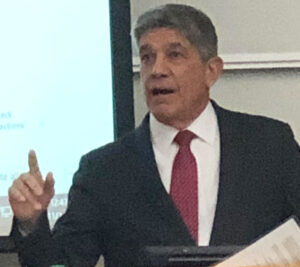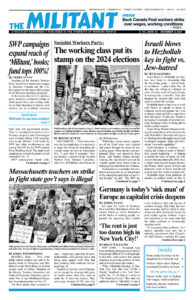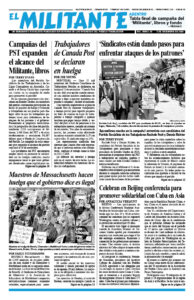
NEWARK, N.J. — Carlos Fernández de Cossío, Cuba’s deputy minister of foreign affairs, spoke to a meeting of 35 at Rutgers Law School here Nov. 14.
Law professor Charles Auffant, who has organized trips to study Cuba’s legal system for the past 20 years, chaired the meeting. He announced these trips will now be open to undergraduate students.
Fernández de Cossío focused on the devastating impact of Washington’s 64-year economic war against the Cuban people and their socialist revolution.
“The U.S. prohibits any imports to Cuba with only a few exceptions, and it prohibits imports to Cuba from any country, regardless of the product, if it has 10% or more U.S. product in it. What products in the world does that not include?” he said. Examples he gave included getting parts for dialysis machines or parts to repair Cuba’s aging electrical grid.
“This is multiplied more and more, repeated in every area,” he said. “No import of metal, no cars, candy bars and much more. And Cuba cannot use U.S. dollars in its trade with international partners.”
He pointed out that under both Presidents Donald Trump and Joseph Biden, the U.S. has unjustly put Cuba on its list of State Sponsors of Terrorism.
The embargo has caused severe problems with basic services like electricity and health care. “Many in Cuba are looking to move,” said Fernández de Cossío.
At the same time, all of Washington’s attempts to isolate Cuba — the 1961 invasion at the Bay of Pigs, CIA schemes to assassinate Fidel Castro — have failed to undo the revolution.
“Cuba has a respectful and cooperative relationship with the majority of countries of the world,” he said. “We have a firm determination for Cuba to be free of foreign interference, but we are willing to have constructive, civilized relations with the U.S.”

